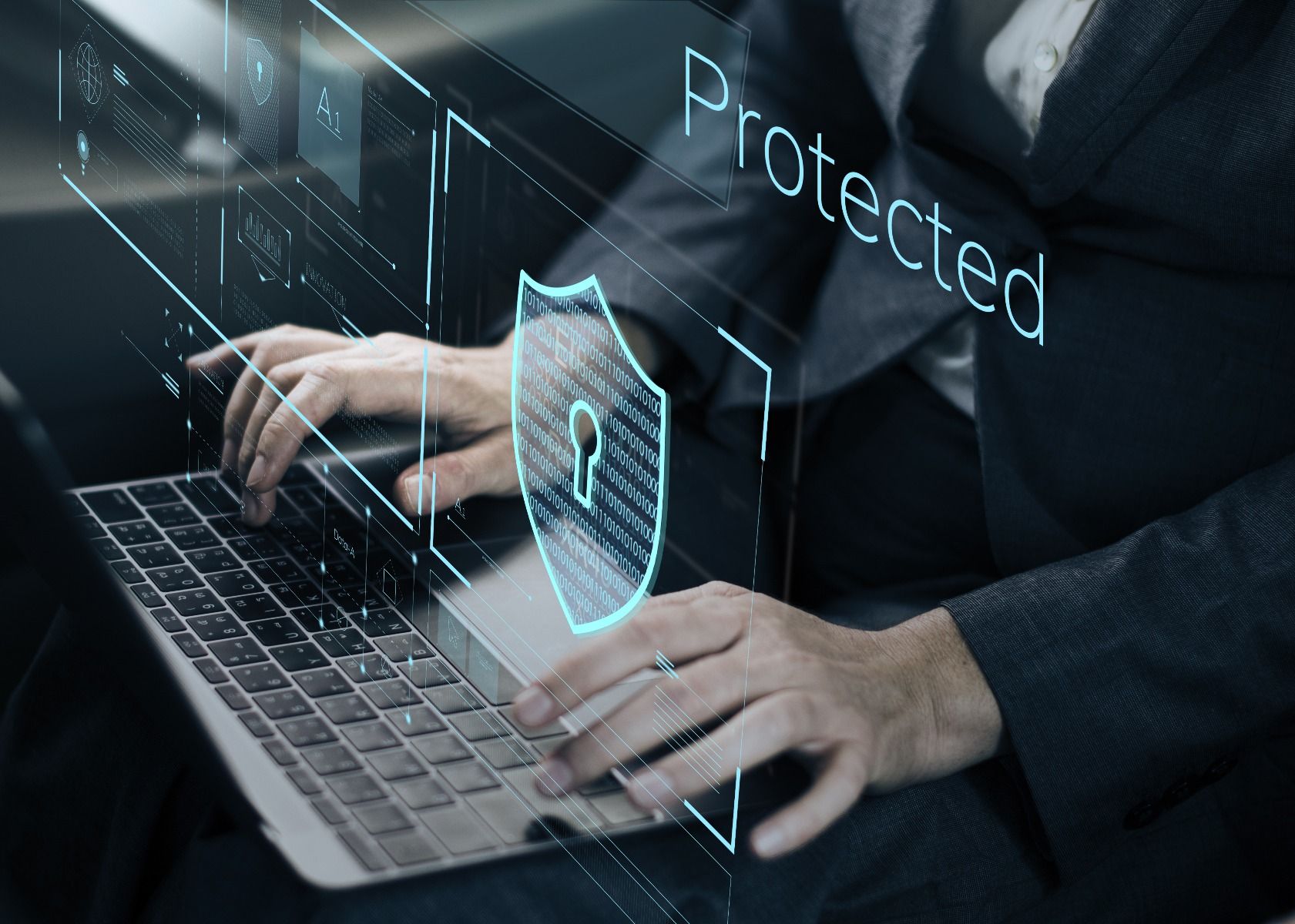The Importance of Cybersecurity



The Importance of Cybersecurity

November 30th marks Computer Security Day, and in today’s world, technology plays a large role in most of what we do both professionally and personally. Much of our private information is shared electronically on various websites. It’s important to remember that the data stored on our computers and mobile devices must be kept secure and safe. However, taking steps to ensure our private materials doesn’t have to be overwhelmingly daunting.
Here are four tips to ensure you’re up-to-date when it comes to protecting yourself online.
Always use strong passwords.
You’ve heard it before: it’s not wise to use password as a password. It’s also not in best practice to use words, dates, or phrases that others might be able to guess, such as the names of your children, your anniversary, or your address. Using these elements in your password opens your information to being hacked or stolen. Strong passwords require a combination of letters, numbers, and symbols that would be difficult for others to guess. It’s also wise to use different passwords across all of the sites that require a login. Using the same or a similar password could lead to being hacked on multiple websites.
Protect everything possible.
We store all sorts of information electronically these days: bank account numbers, confidential documents, passwords, among other items. If the information should be protected in any way, it’s imperative to do so. Passwords can be used to protect documents, and online banking and credit card site login information should be kept private. Any files that should be kept need to be backed up in some form or another, either through the cloud or on a hard drive.
Keep software up-to-date.
Any internet browsers, applications, or operating systems that run on any desktop, laptop, or mobile device will need to be regularly refreshed. Companies update these items to ensure they are running as best as they can and have the latest features. Applications and programs that are not updated run a higher risk of being hacked, and newer versions are more protected. Most devices let users opt into automatic updates and can help to keep devices up-to-date without tasking the user with completing this task manually.
Check for encrypted websites.
Sites that require users to login, especially when shopping or banking online, should ensure that data that is transmitted between your computer and the company’s server is done without being intercepted. These types of websites are encrypted and secure to share sensitive information. You can tell if a site is encrypted by examining the URL or web address. Secure sites begin with https://, while non-secure sites begin with http://. It is important to double check when entering private data that the site is, in fact, encrypted.
While there are many things you can do to protect yourself online, these four steps will set you off on the right foot. The more self-education and awareness you have will keep your information safe and secure.
- Cat5e & Cat6e Bulk Cable (36)
- Ecore HDMI Cables (13)
- How To Terminate RJ45 Connectors (3)
- The 5S Advantage (5)
- Network Racks (17)
- Connector (479)
-
USB
(89)
- USB Hubs (10)
-
Splitter
(51)
- Converters (24)
- Power Supply (7)
- Management Bay (2)
- Amplifier (6)
-
Adapter
(370)
- Coaxial (55)
- XLR Cables (11)
-
Tools
(36)
- Instillation Tools (12)
-
Wall Mount
(43)
- Cabinets (9)
-
Cables
(149)
- Pro Audio (82)
- Wall Plate (29)
- BNC (10)
- Wiring Cover (14)
- S-Video (6)
- Video Cables (16)
- Patch Cable (36)
- J-Hook (14)
- Power Cords (43)
- Cat7 (3)
-
Charger
(5)
- Car Charger (4)
- Wall Charger (2)
- Lightning (1)
- Data (4)
- HDMI (14)
- Adapters (2)
- Cat5e (2)
- Cat6 (2)
- Ethernet (37)
- Cat6a (4)
- RJ45 (4)
- Computer Cables (3)
- USB (2)
- FireWire (1)
- Serial (3)
- DIN (3)
- Audio Cables (3)
- 3.5mm (4)
- VGA (4)
- DVI (3)
- Optical Toslink (1)
- XLR (3)
- RCA (2)
- DisplayPort (4)
- telephone (8)
- rj11 (3)
- rj12 (3)
- coiled (0)
- flat (0)
- Coax (10)
- RF (2)
- RG (2)
- Low Loss (LMR) (2)
- fiber optic (11)
- Speaker Wire (2)
- AWG (1)
- labels (0)
- management (4)
- tape (0)
- splice (0)
- techflex (0)
- safety strip (0)
- boot (0)
- heat shrink (0)
- weatherproof (1)
- management (2)
- prep (1)
- support (1)
- extension (3)
- raceway (1)
- duct (1)
- crimp (1)
- Stripper (1)
- Cutter (1)
- surge protectors (5)
- power strips (2)
- How To Terminate Coax Connectors (0)
- antenna (1)
- satellite (1)
- detangler (1)
- DIY (11)
- banana (1)
- switch (7)
- custom (1)
- ShowMeCables (1)
- guide (1)
- Brands (1)
- multi-conductor (2)
- announcement (1)
- patch panel (2)
- keystone (3)
- ceiling mount (3)
- Pinouts (1)
- History (2)
- Certification (3)
- Organization (1)
- null modem (1)
- Television (2)
- DMX (1)
- streaming (0)
- Glossary (1)
- FAQ (1)
- Bulk Cable (1)
- Industrial (1)
- Cybersecurity (1)
- Computer Security (1)

